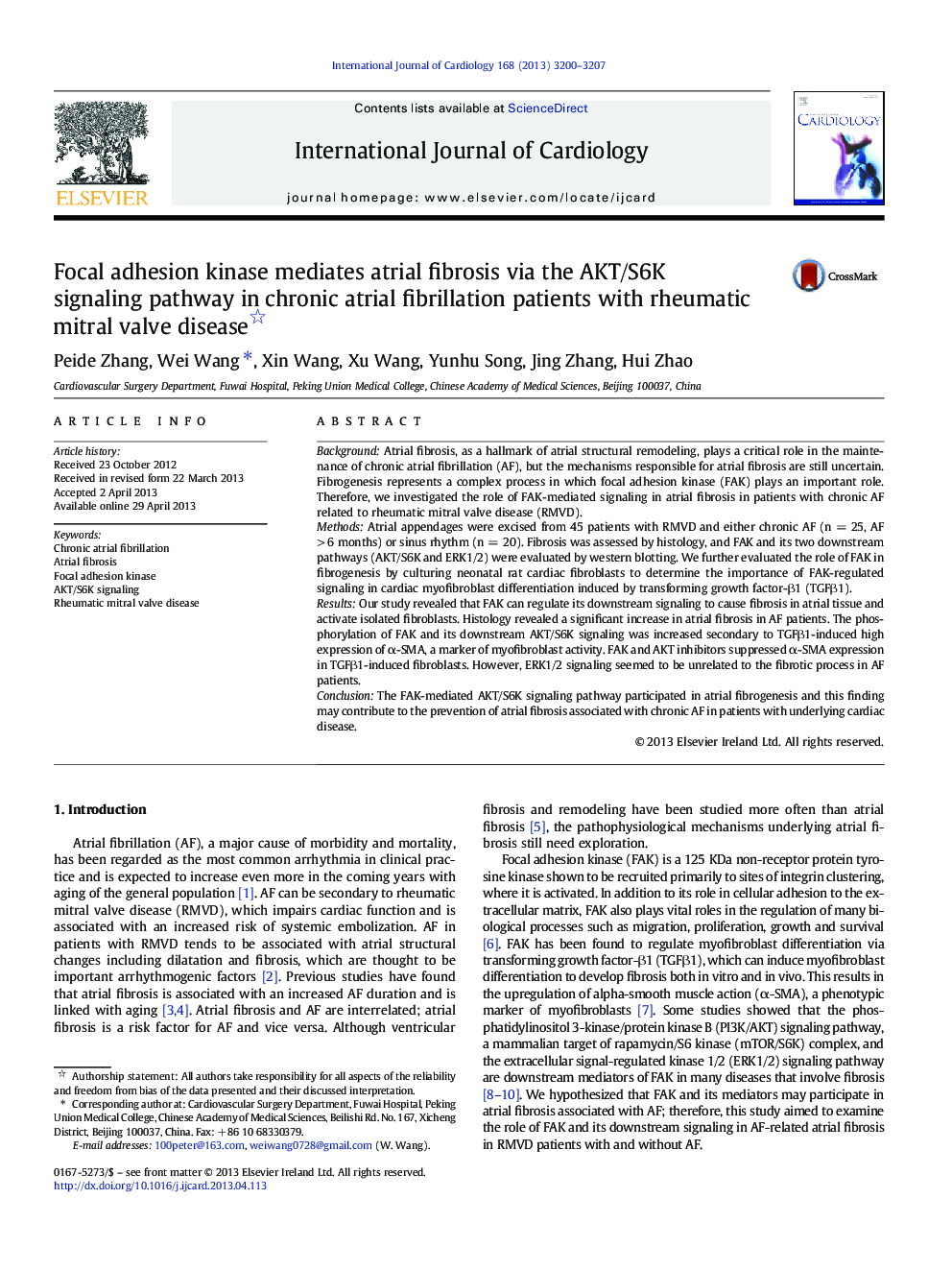| Article ID | Journal | Published Year | Pages | File Type |
|---|---|---|---|---|
| 5973585 | International Journal of Cardiology | 2013 | 8 Pages |
BackgroundAtrial fibrosis, as a hallmark of atrial structural remodeling, plays a critical role in the maintenance of chronic atrial fibrillation (AF), but the mechanisms responsible for atrial fibrosis are still uncertain. Fibrogenesis represents a complex process in which focal adhesion kinase (FAK) plays an important role. Therefore, we investigated the role of FAK-mediated signaling in atrial fibrosis in patients with chronic AF related to rheumatic mitral valve disease (RMVD).MethodsAtrial appendages were excised from 45 patients with RMVD and either chronic AF (n = 25, AF > 6 months) or sinus rhythm (n = 20). Fibrosis was assessed by histology, and FAK and its two downstream pathways (AKT/S6K and ERK1/2) were evaluated by western blotting. We further evaluated the role of FAK in fibrogenesis by culturing neonatal rat cardiac fibroblasts to determine the importance of FAK-regulated signaling in cardiac myofibroblast differentiation induced by transforming growth factor-β1 (TGFβ1).ResultsOur study revealed that FAK can regulate its downstream signaling to cause fibrosis in atrial tissue and activate isolated fibroblasts. Histology revealed a significant increase in atrial fibrosis in AF patients. The phosphorylation of FAK and its downstream AKT/S6K signaling was increased secondary to TGFβ1-induced high expression of α-SMA, a marker of myofibroblast activity. FAK and AKT inhibitors suppressed α-SMA expression in TGFβ1-induced fibroblasts. However, ERK1/2 signaling seemed to be unrelated to the fibrotic process in AF patients.ConclusionThe FAK-mediated AKT/S6K signaling pathway participated in atrial fibrogenesis and this finding may contribute to the prevention of atrial fibrosis associated with chronic AF in patients with underlying cardiac disease.
